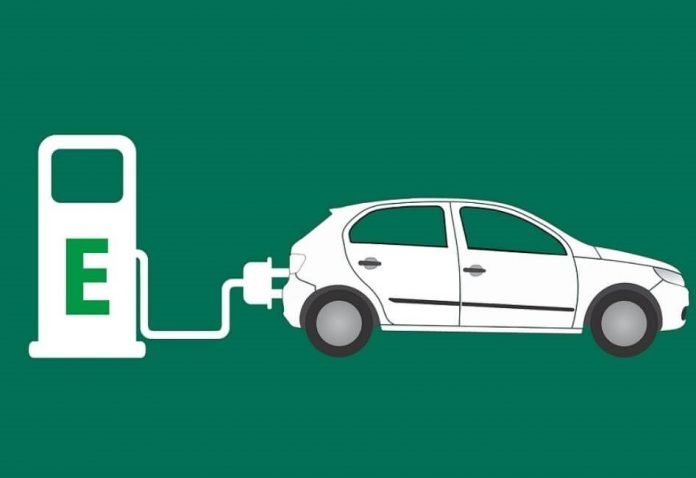As the world becomes more aware of the harmful effects of greenhouse gas emissions, the transition to electric vehicles is gaining momentum. However, as with any major technological shift, there are ethical considerations that must be taken into account. We will explore the ethical implications of the transition to electric vehicles.
One of the key ethical considerations of the transition to electric vehicles is the distribution of benefits and costs. Electric vehicles have the potential to reduce air pollution and greenhouse gas emissions, improving public health and mitigating climate change. However, the benefits of electric vehicles are not evenly distributed. People who live in areas with high levels of air pollution and those who are most vulnerable to the effects of climate change, such as low-income communities, are likely to benefit the most from the transition to electric vehicles. On the other hand, those who work in industries that rely on fossil fuels, such as oil and gas, may face job losses and economic dislocation as the world moves away from fossil fuels.
Another ethical consideration of the transition to electric vehicles is the responsibility of consumers, automakers, and governments to promote sustainable transportation. Consumers have a responsibility to choose environmentally friendly options, but they also need access to information about the environmental impact of their choices. Automakers have a responsibility to produce electric vehicles that are affordable and accessible to all, while also promoting sustainable transportation through innovation and research. Governments have a responsibility to regulate the transition to electric vehicles, ensuring that the transition is equitable and that no one is left behind.
The transition to electric vehicles also raises questions about the role of individual car ownership in society. While electric vehicles are a step towards more sustainable transportation, they still require significant amounts of energy and resources to produce and maintain. In addition, individual car ownership contributes to urban sprawl, traffic congestion, and the isolation of individuals from their communities. As such, the transition to electric vehicles should also be accompanied by efforts to promote alternative forms of transportation, such as public transit, biking, and walking.
One ethical consideration of the transition to electric vehicles is the environmental impact of producing and disposing of the vehicles. While electric vehicles produce fewer emissions during use compared to gasoline-powered vehicles, the production of electric vehicles still requires energy and resources. This includes the extraction of rare earth minerals used in electric vehicle batteries, as well as the manufacturing and disposal of those batteries. As such, it is important to ensure that the transition to electric vehicles is accompanied by efforts to reduce the environmental impact of the production and disposal of these vehicles.
Another ethical consideration is the potential for electric vehicles to exacerbate existing social and economic inequalities. While electric vehicles have the potential to benefit low-income communities, these communities may also face barriers to accessing electric vehicles. For example, the upfront cost of electric vehicles may be prohibitive for some individuals, while the lack of charging infrastructure in some areas may limit the ability of individuals to own and operate electric vehicles. As such, it is important to ensure that the transition to electric vehicles is accompanied by efforts to address these inequalities and promote access to sustainable transportation for all.
Additionally, the transition to electric vehicles raises questions about the responsibility of automakers and governments to ensure that electric vehicles are safe and reliable. As with any new technology, there are potential risks and uncertainties associated with electric vehicles, including the risk of battery fires, the reliability of charging infrastructure, and the potential for cyber attacks on electric vehicle systems. As such, it is important to ensure that electric vehicles are subject to rigorous safety and reliability standards, and that governments and automakers work together to address any potential risks and uncertainties.
Finally, the transition to electric vehicles raises ethical questions about the future of the automotive industry. As electric vehicles become more common, traditional automakers and fossil fuel companies may face declining demand for their products. This may lead to job losses and economic dislocation for workers in those industries. At the same time, the shift towards electric vehicles may create new opportunities for innovation, research, and entrepreneurship.
Besides, the transition to electric vehicles raises ethical questions about the role of government in promoting sustainable transportation. While governments have a responsibility to regulate the transition to electric vehicles, they also have a responsibility to ensure that the transition is equitable and that no one is left behind. This includes providing support and resources for the development of charging infrastructure, promoting research and development of new electric vehicle technologies, and providing incentives and subsidies to promote the adoption of electric vehicles. At the same time, governments must also ensure that the transition to electric vehicles is not used as an excuse to neglect investments in other forms of sustainable transportation, such as public transit, biking, and walking.
In conclusion, the transition to electric vehicles raises a number of ethical considerations, including the distribution of benefits and costs, the responsibility of consumers, automakers, and governments to promote sustainable transportation, the role of individual car ownership in society, and the future of the automotive industry. While the transition to electric vehicles is a step towards more sustainable transportation, it is important to ensure that the transition is equitable and that all individuals and communities can benefit from the shift towards a more sustainable future.







